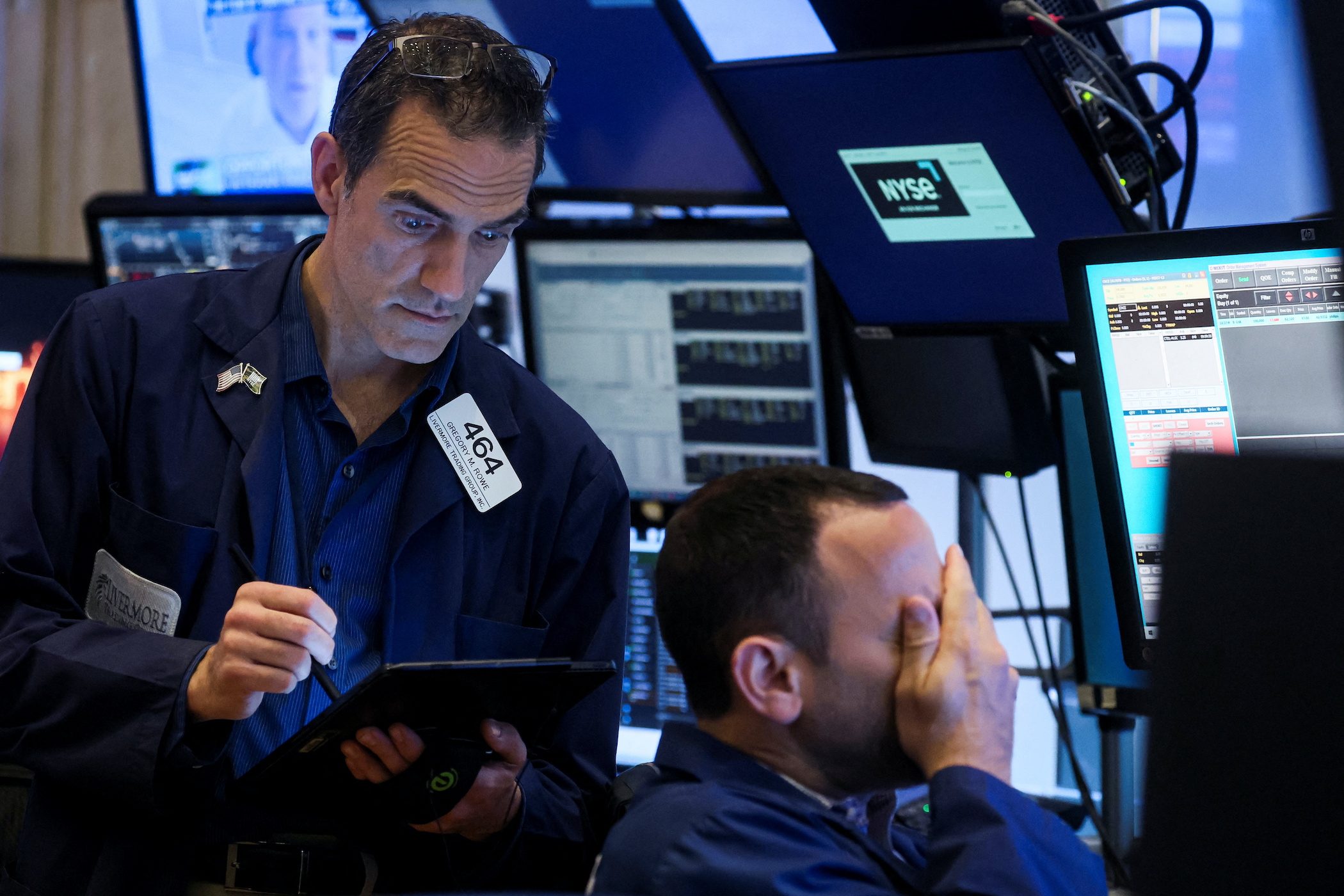SUMMARY
This is AI generated summarization, which may have errors. For context, always refer to the full article.

NEW YORK, USA – Global equities fell and the US dollar advanced on Wednesday, June 1, after stronger-than-expected economic data was unable to assuage investor concerns of high inflation and an impending recession driven partly by rising oil prices.
A report by the Institute for Supply Management showed US manufacturing activity picked up in May as demand for goods remained strong even with rising prices.
The survey followed data released last Friday, May 27, showing US consumer spending, the largest contributor to American economic output, increased in April even amid growing concerns of a recession.
Market sentiment, however, has remained bearish due to the prevailing uncertainty caused by the pace of the US Federal Reserve’s interest rate hikes, and the impact of the Russia-Ukraine war on food and commodity prices.
“There’s a lot of uncertainty. The market climbs a wall of worry and there’s a lot to worry about,” said Michael Ashley Schulman, chief investment officer at Running Point Capital in Los Angeles.
“If we have a recession it would be strange and unusual with nearly full employment, companies still hiring, and huge demand for things,” Schulman added.
The MSCI world equity index, which tracks shares in 50 countries, was down 0.81%. The pan-European STOXX 600 index fell 1.04%.
US Treasury yields rose in choppy trading. Benchmark US 10-year yields hit a two-week high of 2.9149%, while two-year yields also climbed to a two-week peak of 2.6517%.
On Wall Street, all three main indexes ended lower, driven by stocks in the financials, healthcare, technology, and consumer discretionary sectors.
The Dow Jones Industrial Average fell 0.54% to 32,813.23, the S&P 500 lost 0.75% to 4,101.23, and the Nasdaq Composite dropped 0.72% to 11,994.46.
“The rising interest rates and inflation are just compressing valuations. You may like a company and it may be good and can continue to make profits but the valuation must still come down because your base interest rate is rising,” Schulman added.
Upbeat data
Oil prices continued to strengthen following the move by European Union leaders to gradually phase out Russian oil even as China ended its stiff COVID-19 lockdown in Shanghai, which could bolster demand for crude in an already tight market.
Brent crude was up 0.18% at $115.81 a barrel, while US West Texas Intermediate crude gained 0.04% to $114.72.
The US dollar rose against the euro, helped by upbeat US economic data, and as the common currency remained under pressure following the hottest eurozone inflation on record that raised worries about the region’s growth outlook.
The dollar index rose 0.786%, with the euro down 0.79% to $1.0648.
Gold prices inched up from a two-week low, supported by worries over rising inflation, although a stronger dollar and rising US yields kept gains in check.
Spot gold added 0.5% to $1,845.70 an ounce, while US gold futures gained 0.28% to $1,847.90 an ounce. – Rappler.com
Add a comment
How does this make you feel?
There are no comments yet. Add your comment to start the conversation.